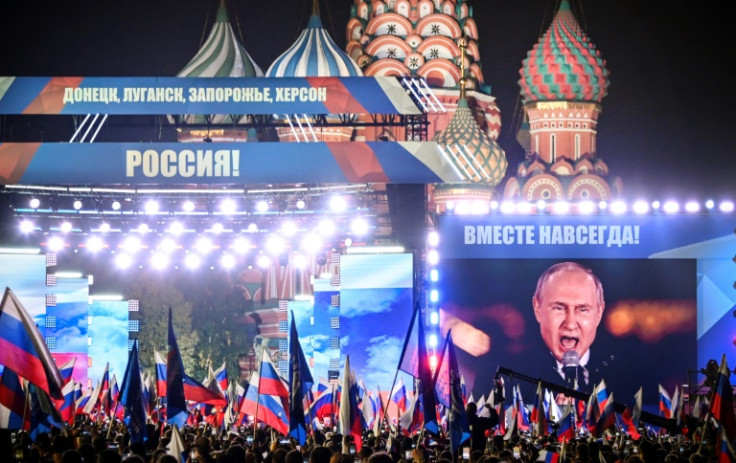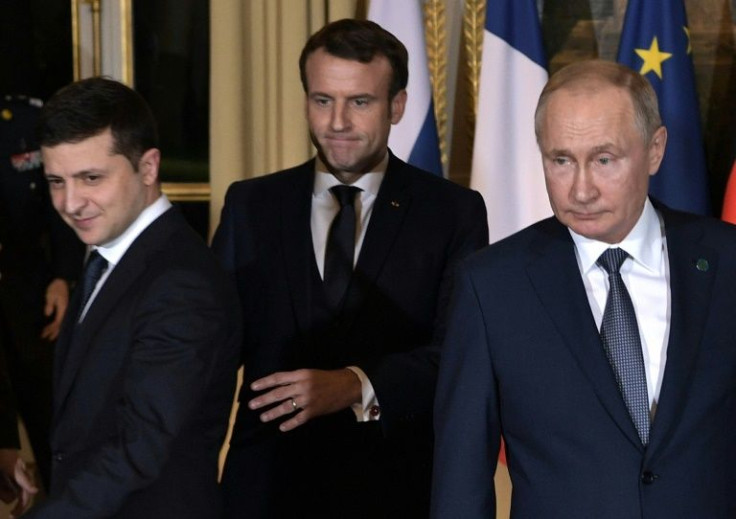55% Of Russians Want Peace Talks With Ukraine; War Supporters Drop By 32%

KEY POINTS
- A Kremlin-commissioned poll showed that Russian support for peace talks has increased from just 32% in July
- The survey conducted by the Russian Federal Protective Service closely mirrored the public poll results of the Levada Center
- A Russian political scientist said the Kremlin is unlikely to cave in to public pressure and pursue peace talks with Ukraine
The majority of Russians now want peace negotiations with Ukraine, an opinion poll commissioned by the Kremlin showed, as Russia's protracted "special military operation" enters its 10th month.
The survey, conducted by Russia's Federal Protective Service (FSO) for Kremlin's "internal use," revealed that 55% of Russians advocate peace talks with Ukraine, while only 25% want to continue the war, Russian news outlet Meduza reported.
The new poll indicated an increase in those who want to pursue peace talks. In a July Kremlin-commissioned survey, only 32% of the respondents supported the negotiations.
On the other hand, those who favor continuing the Russian military offensive against Ukraine dropped by 32%, from 57% in July to 25% in the latest survey.
The results of the Kremlin internal survey closely mirrored the public survey conducted by the independent sociological institute Levada Center in October, Meduza noted.
Based on Levada's survey results, 57% of Russians said they would support or probably support peace talks with Ukraine. Meanwhile, only 27% supported continuing the war.
Denis Volkov, the director of the Levada Center, told the outlet that Russian President Vladimir Putin's call for partial mobilization in September likely contributed to the growing support for peace negotiations.
"This is sheer reluctance to take part in the war personally. They continue to support it, but they have very little desire to participate themselves. Besides, their support was, from the very start, something they declared with regard to what they perceived as having nothing to do with themselves: 'Life goes on — it's even getting better.' Now, the risks are greater, and people want to start the talks. Still, the majority of people leave this to the government: 'We'd like it, but it's up to them to decide,'" Volkov said.
Russian sociologist Grigory Yudin also subscribed to the idea that the draft led to the rise in public support for peace talks, Meduza reported.
He noted that Russians' "loss of faith in the victory" in the war and the "absence of a convincing account" of how Russia could still win against Ukraine also contributed to the shift in public opinion.
Yudin said the possibility of anti-war protests in Russia is "very high."
Russian political scientist Vladimir Gelman told the outlet that despite the poll results, the Putin administration is unlikely to pursue negotiations with Ukraine.
Gelman suggested that the peace talks would mainly depend on the situation on the battlefield and that the Putin administration is "not ready to make concessions."
In October, Meduza reported that several Russian officials, including Putin, hinted they would support peace talks with Ukraine.
Russian Foreign Intelligence Service director Sergey Naryshkin and Federation Council Speaker Valentina Matvienko said peace talks are possible if Ukraine supports Russia's conditions.
In September, Putin raised the possibility of negotiations "to ensure this [war] ends as quickly as possible." But he blamed Ukraine for refusing to negotiate with Russia.

© Copyright IBTimes 2025. All rights reserved.






















